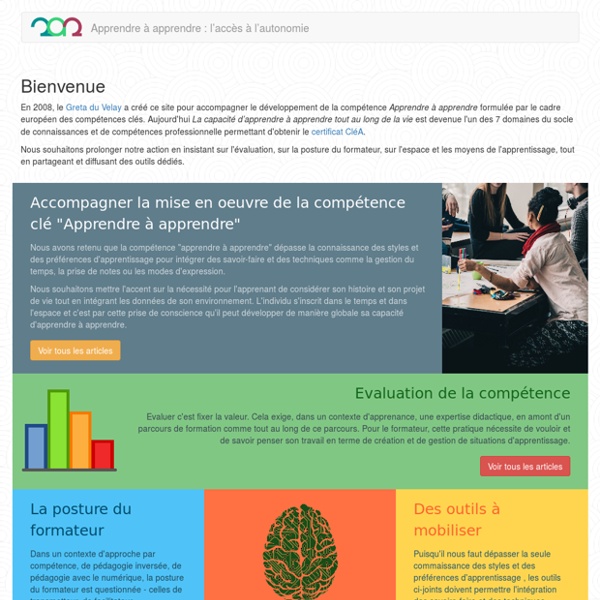The Secret to Student Success? Teach Them How to Learn.
Sometimes the details former students recall from class is nothing short of amazing. A few years ago I had a student named Abby in my history class, who had always been in self-contained special education classrooms. Her teacher wanted her in my class for socialization purposes, and she did well. A year later, Abby began stopping by my class to deliver notes from the office a few times a week and I was always delighted to see her. One day I had been planning to discuss metacognition—a learning strategy I teach to my middle-school students.
Our Growth Mindset
Please forgive me if you have already heard me refer to the concept of “growth mindset,” a notion we owe to the renowned Stanford psychologist Carol Dweck, whose book, Mindset: The New Psychology of Success, is one of the most thought-provoking texts about human psychology to have been published in a long time. For Dweck, much of how people approach the challenges they face in life, as well as the way in which they define their sense of satisfaction in meeting those challenges, hinges on the outlook they have on the world. NB.
Working Memory
by Saul McLeod published 2008, updated 2012 Atkinson’s and Shiffrin’s (1968) multi-store model was extremely successful in terms of the amount of research it generated.
Metagognition.com
If you’re trying to use your Google Account and see a message saying your browser's cookie functionality is turned off, it’s likely your browser's cookies are disabled. You’ll need to turn cookies on to use your Google Account. Google Chrome On your browser toolbar, select More Settings. Near the bottom of the page, select Advanced. Under "Privacy and security," select Content settings. Select Cookies.
Publications — LRN
Allaire-Duquette, G., Belanger, M., Grabner, R. H., Koschutnig, K., & Masson, S. (2019). Individual differences in science competence among students are associated with ventrolateral prefrontal cortex activation. Journal of Neuroscience Research, 97(9), 1163-1178. doi:10.1002/jnr.24435
The Power (and Peril) of Praising Your Kids
What do we make of a boy like Thomas? Thomas (his middle name) is a fifth-grader at the highly competitive P.S. 334, the Anderson School on West 84th. Slim as they get, Thomas recently had his long sandy-blond hair cut short to look like the new James Bond (he took a photo of Daniel Craig to the barber). Unlike Bond, he prefers a uniform of cargo pants and a T-shirt emblazoned with a photo of one of his heroes: Frank Zappa.
Entrance testing is not the answer
University students need to learn to write for different disciplines and assignments, and testing the skills they learned in high school isn’t relevant to what they will need to learn. by Roger Graves and David Slomp We commend Nicholas Dion and Vicky Maldonado for calling for assessments of university students’ writing (“We need to assess student literacy skills”) in University Affairs.
Simple Ways to Integrate Four Evidence-Based Teaching Strategies
When educators understand the science behind teaching practices they can more readily incorporate them into their daily instruction, says Cult of Pedagogy’s Jennifer Gonzalez. In her podcast and accompanying post, Gonzalez highlights the four key teaching strategies researcher that Pooja Agarwal and K–12 teacher Patrice Bain feature in their new book, Powerful Teaching: Unleash the Science of Learning. They explain the science behind the suggestions, many of which are familiar, as well as best practices and applications for each one.
77 Ways to Learn Faster, Deeper, and Better
If someone granted you one wish, what do you imagine you would want out of life that you haven’t gotten yet? For many people, it would be self-improvement and knowledge. Newcounter knowledge is the backbone of society’s progress. Great thinkers such as Leonardo da Vinci, Thomas Edison, Benjamin Franklin, Albert Einstein, and others’ quests for knowledge have led society to many of the marvels we enjoy today. Your quest for knowledge doesn’t have to be as Earth-changing as Einstein’s, but it can be an important part of your life, leading to a new job, better pay, a new hobby, or simply knowledge for knowledge’s sake — whatever is important to you as an end goal.
In praise of the squishy subjects - Capital Read, Inkless Wells
Dear readers: This one’s long. You may want to settle in. About a year ago the Canada Millennium Scholarship Foundation approached me to contribute a paper in conjunction with a conference the group would host, called Opportunities-Excellence.


